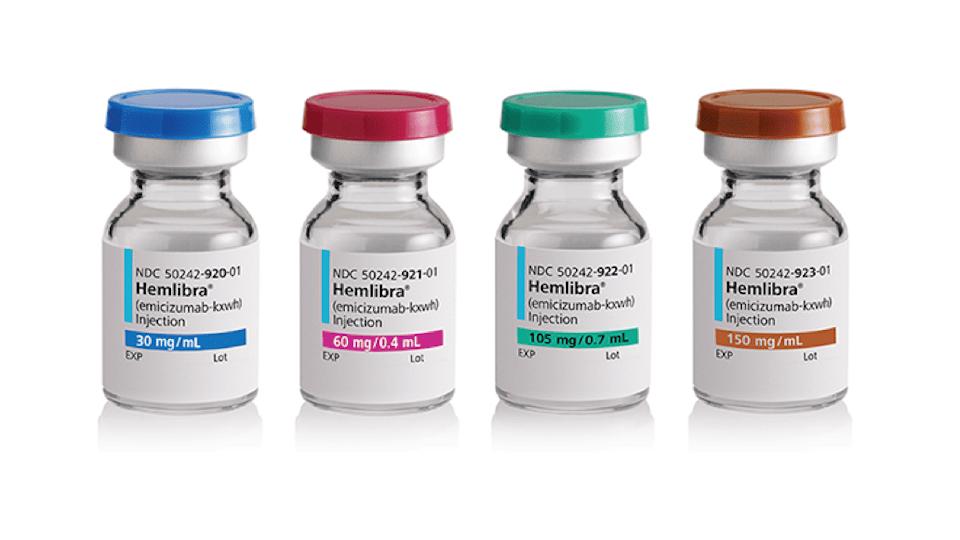EU expands use of Roche's new haemophilia A drug

The European Commission has approved Roche haemophilia A drug Hemlibra for patients without factor VIII inhibitors, expanding the use of the drug that is expected to drive sales as blockbuster cancer drugs face increasing competition.
Hemlibra (emicizumab) is already approved in the EU for haemophilia A patients with inhibitors, and the latest approval means Roche’s drug covers the whole disease population in Europe.
The drug is a prophylactic medicine given subcutaneously at multiple dosing options – once weekly, every two weeks, or every four weeks.
Hemlibra is tipped to achieve sales north of a billion dollars annually, at a time when Roche’s “big three” cancer drugs Avastin, Herceptin, and Rituxan/Mabthera face competition from biosimilars.
These three drugs produced cumulative revenues of more than $20 billion a year at peak, but the cheaper near-copies are stealing market share fast, particularly in Europe.
Sales of Hemlibra so far have been encouraging – it is already approved in the entire disease population in the US, where it amassed full year sales of more than $150 million from a virtual standing start.
Revenues following in the EU following launch around a year ago were around $40 million, indicating a solid start.
However Hemlibra has not been a runaway success like multiple sclerosis drug Ocrevus (ocrelizumab), which is now generating sales of more than $2 billion annually after a launch in 2017.
Hemlibra is a bispecific factor IXa- and factor X-directed antibody, and works by bringing together these two proteins, which help activate the natural coagulation cascade and restore the blood clotting process for haemophilia A patients.
In the single-arm phase 3 HAVEN 4 study, Hemlibra prophylaxis every four weeks led to clinically meaningful control of bleeding in adults and adolescents aged 12 years or older with haemophilia A with factor VIII inhibitors (n=5) and without factor VIII inhibitors (n=36).
In pooled data from the phase 3 HAVEN programme (n=373), the most common adverse reactions occurring in 10% or more of people treated with Hemlibra were injection site reactions (20%), joint pain (arthralgia; 15%) and headache (14%).













